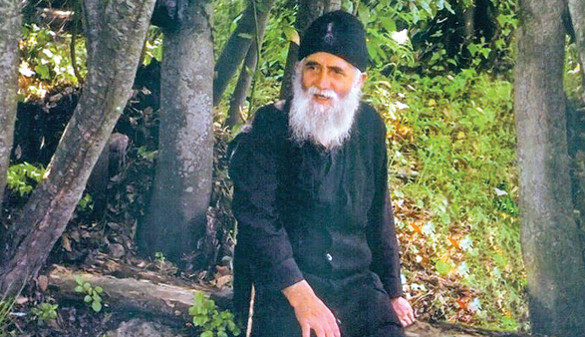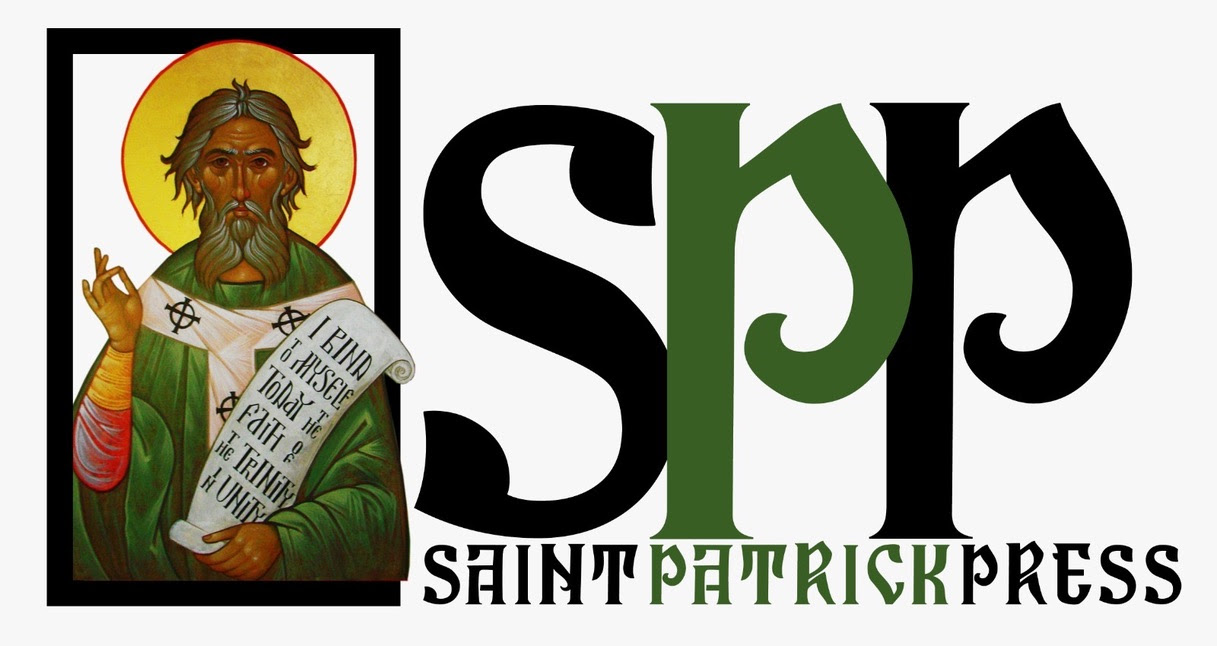A story about how a poet and Saint Paisios helped me redefine what creativity means when I was broken, confused, and in need of answers.
The law of the LORD is perfect, converting the soul; the testimony of the LORD is sure, making wise the simple … the fear of the LORD is clean, enduring forever … Psalm 19.

Needing Creativity Redefined

I had been going through a really rough time of healing and recovery from some some dark places I had fallen into; places I never thought growing up that I would fall into; places that seemed prestigious and powerful, but were full of brokenness and deception on a grand scale. It all looked so good–until it wasn’t!
The painful thing was during that time, and in the work I was doing, I came under a philosophy and practice of creativity that was distorted, and which led to woundedness at the core of who I was as a writer. I needed creativity redefined for me.
Coming out of such a time and space, I was desperate for answers: did God really care about creativity? Did God really care if I was writing or not? Could God even inspire me to write, or was I supposed to be just praying all the time trying to do good? Could going deeper into writing be a way of going deeper into relationship with God ?
I was seeking answers. I was looking to be touched, inspired, and healed, but didn’t know where to turn. I was hungry for insight into that particular set of questions, questions about creativity and being and God and healing …
Sleepless on the Lake
It was a muggy July night on the lake at my in-laws’ house. Given the number of family members staying at the house, my wife, children, and I were sharing a bedroom. I couldn’t sleep: maybe it was the mugginess of the evening, the prodding of my son’s foot into my back, the gobs of watermelon I had indulged in before bed, too much bonfire, too many espressos that day—I don’t know. Nevertheless, I couldn’t sleep and was somehow in a place of inspiration.
When I can’t sleep I usually like to read, but in this instance I put on a podcast. It was a talk given by someone named Nick Samaras at a conference I had never heard of before but sounded interesting: The Climacus Conference. The title of Nick’s talk was Poetry as Spiritual Pilgrimage into Beauty. I plugged my headphones in, took a deep breath, shifted my body almost to the edge of the bed, thus farther from my son’s ever-encroaching foot upon my rib cage, and listened to Samaras’s talk as the filtered moonlight faintly illumined the room.
Poetry as Pilgrimage

From the moment Samaras began his talk I was drawn into another world; a world of creativity I had never been to before; a truly enchanted world in which spiritual practice and art and creating were one and the same state of being. Before I knew it, I had goosebumps everywhere and was wiping tears from my eyes. While listening to Samaras, I realized I was on my own spiritual pilgrimage into Beauty.
Nick’s opening statement of the talk blew my mind:
In speaking about poetry as spiritual pilgrimage into beauty, when I am speaking about poetry, I will be equally speaking about pilgrimage. And I will be equally speaking about beauty and equally speaking about God. Because from this framework–poetry, God, pilgrimage, Beauty–they are terms synonymous in nature. … When you use poetry and you substitute that with God, you’ll find amazingly it actually works.
I had never heard such a thing before–ever! Poetry and God and Beauty as synonymous terms? And then he adds:
Secondly, I want to start with poetry and then I’m going to end with Father Paisios, because I went many times to visit and speak and council with him. And that becomes the idea, the way I see the connection with poetry and pilgrimage and beauty–it is all a process of purification. Creativity writing, in my case poetry … poetry is not about writing. Poetry is about re-writing, about re-vision. And so we are able to clarify and purify the original vision that we have in terms of creativity. And if you think the same way about pilgrimage and you think the same way of God you can see that being applicable as well.
As I lay there, I could see a way forward. I could see that my aspiration for writing, for creating, for representing the human condition in prose as a Christian could also be a way forward for me into healing and an actual “participation in eternity,” as Nick explains,
What I regard writing, any kind of writing, writing is our participation in eternity. And therefore going on a pilgrimage is our participation in eternity, praying is our participation in eternity, so you see how they start to become interchangeable …
How Nick opens us to the understanding of pilgrimage is beautiful. There’s an existential element to this thought–that we are pilgrims on this earth, that we have been created for this world but also for another Kingdom, the Kingdom of God. And our walking through this world is the means through which we encounter the Kingdom of Heaven. So our walking and engaging in this world can be full of enchantment and encounter.
The Divine Liturgy (link) is also a pilgrimage, a procession to the throne of God and the presence of the heavenly hosts and the choir of saints. And in that same way, writing is a pilgrimage, a procession, towards Beauty and Truth and God.
Nick’s Story of Meeting Elder Paisios: The Olive Oil

The highlight of Nick’s talk is his story about going to meet Elder Paisios at Mount Athos. The elder meets Nick and brings him inside his hut, makes him something to eat, and talks to him. Nick shares with him his aspiration to use his creative work, his poetry writing, to enter deeper into God and draw closer to Him, and that over the past while he has felt that he has been falling down on it, and having trouble. The elder listens and then tells Nick the following parable.
There is a man who seeks to make the purest olive oil, but he can’t. Why? Because the olives he has gathered are hard, or bug eaten, or rotten in parts, or flawed in other ways. So what does the farmer do? He cuts out the parts that are hard or bug eaten or rotten and with the parts that are usable he is able to make pure olive oil.
Nick shares in his talk that by this and subsequent encounters with Elder Paisios, and the latter’s parable, his life was changed. And as I laid there in bed with my headphones still plugged in and tears in my eyes, I was changed too—the elder’s words had reached me years later as if I were standing with him too. I was so inspired by Nick’s talk that I reached out to him by email, asking him to share more with me about how Elder Paisios’s story had changed his life—and he got back to me! He wrote:

About how I took Father Paisios’s words and the oil metaphor: Sometimes it’s far easier to forgive other people than it is to forgive yourself. Sometimes, fear of God is just another form of individual ego. From Father Paisios and the oil image, I was able to let go of my self more, to realize I can accept God’s tolerance. … I realize I have to allow God (and others) to forgive me, mold me, change me for the better. I have to let God prune away my negative points. Sometimes, holding them is more ego. How these words affected my work? I focus more on my work. I write in volume so I can prune away the lesser works, the experiments, and revise the better work. For me, writing is not writing; writing is only the clay or stone. Out of that clay or stone emerges the polished work. For me, only rewriting is truly writing. In similar fashion that is God cutting out parts of the olives from which to make pure olive oil …. So pruning, paring. All God’s work. My work to participate, too.
The Poet and the Saint’s Role in Redefining Creativity and Purpose
Nick Samaras’s talk, and his response to my email above—along with other correspondences I had with him—changed my life at a time when I was struggling to understand my calling as a writer, and more importantly how I live creatively as a Christian. Through Nick’s talk and email exchange I began to see that creativity can change one’s life—for good or evil. What I read and heard was that creativity when authentic comes out of a life, a person, whose heart and mind are attuned to God in an ongoing way; that creativity, art, writing, iconography flow out of ones pursuit of a loving union with God.
The struggles Samaras talks about are things I’ve come to realize in my own life, especially when trying to understand art as a way in which I can draw closer to God Himself; the creating of art as a spiritual process, as a pilgrimage, as a spiritual journey along the Way and thus into Being and Beauty Himself.
Nick: If you ever stumble upon this blog, thank you again for being a tremendous and timely inspiration to my life. May the Lord continue to bless you and illumine you in your writing as your pilgrimage into Being …
Blessed St Paisios, pray for us!

